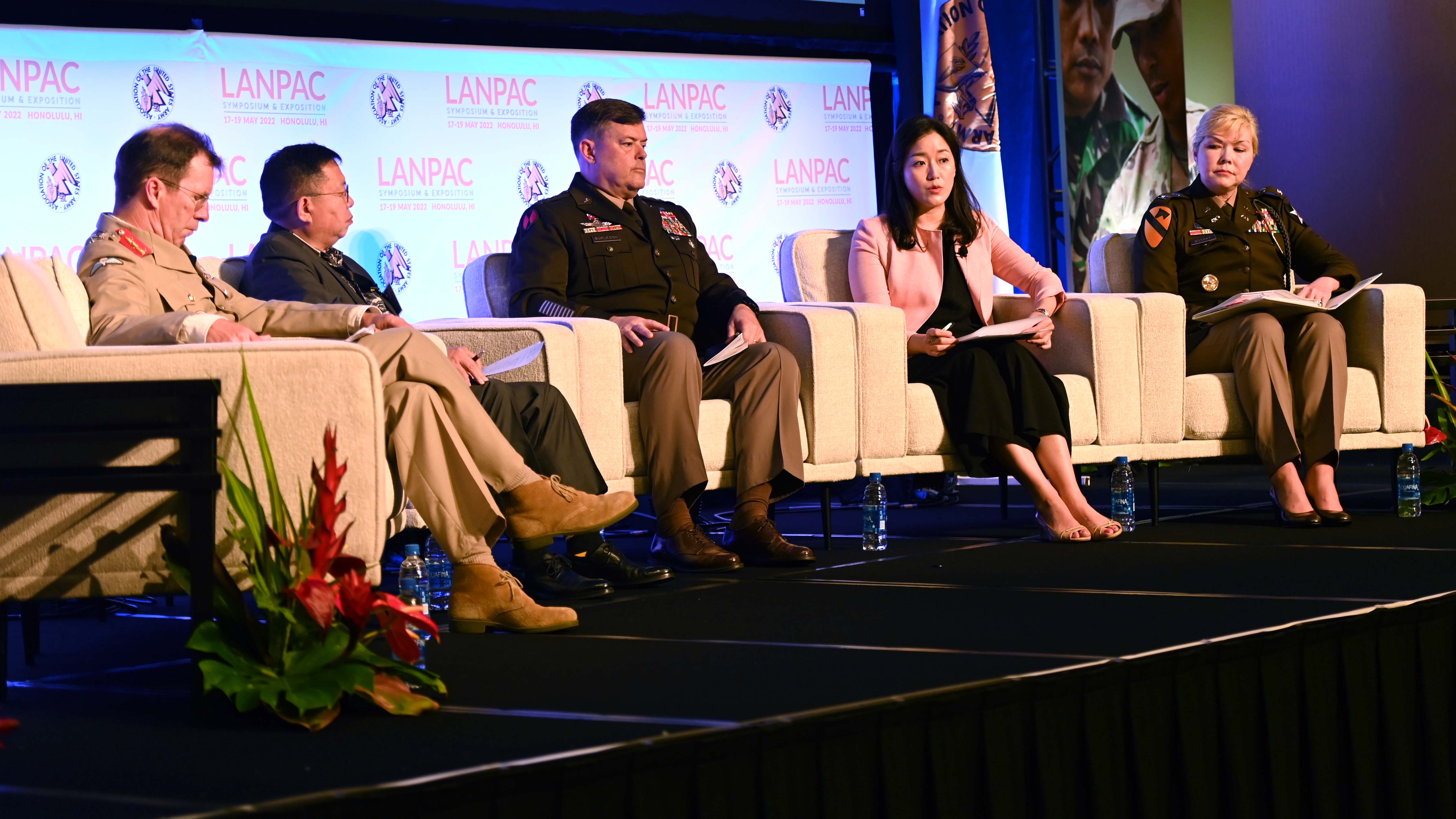Joint Efforts Needed to Deter North Korea
Joint Efforts Needed to Deter North Korea

The deterrence record on North Korea is spotty, warns Duyeon Kim of the Center for a New American Security.
An adjunct senior fellow at CNAS’ Indo-Pacific Security Program, Kim said the deterrence strategy has become increasingly complicated and challenging today compared with the Cold War era, when the U.S. had just one nuclear adversary. Part of the problem is the world is more complicated, with many Asian and European countries having close economic ties to China and Russia, she said May 18 during a discussion about how joint and coalition readiness can deter aggression. She was speaking at the Association of the U.S. Army’s LANPAC conference in Honolulu.
Kim encouraged the U.S. and South Korea to resume joint exercises and hold regular deterrence exercises that “game out” scenarios of what would happen if North Korea used its nuclear weapons. Maintaining a “robust security posture” should be part of the allied strategy, she said.
She believes these conversations need to happen soon as exercises would improve readiness and interoperability of forces.
Lt. Gen. Bill Burleson, 8th Army commanding general, said Kim’s description shows North Korea presents a regional problem, requiring a coalition response.
Recalling the strains of the Korean War, Burleson said alliances and partnerships are critical to planning. “For seven decades, this alliance has been tested. We consistently have provocations,” he said as North Korea was preparing for both underground nuclear tests and potentially firing an intercontinental weapon that could reach the U.S.
There are opportunities in the region for wider international cooperation aimed at deterrence and readiness, Burleson said.
“The need to take a stand has become more pronounced,” Kim said, cautioning deterrence solely based on the military will no longer be effective because there is more involved today.
Deterrence based on only nuclear or military strategy won’t work, Kim said, advocating instead for a comprehensive deterrence strategy. She added that the “jury is still out” about whether North Korea could be dissuaded about the use of its nuclear weapons, clandestine activities or even an invasion of South Korea.
Comprehensive training and preparations in South Korea’s military is difficult, warned retired South Korean Lt. Gen. In-Bum Chun, who said high annual turnover and gaps in weapons and training present problems that need to be addressed. “The only worse thing than fighting with allies is fighting without them,” said Chun, who is president of AUSA’s chapter in Korea. “We are really at the stage where we need the Americans to help us for the next five years.”

